Turquerie a la Baroque (Attention tailors and seamstresses!)
General Discussion
I had some compliments and questions regarding my costuming for last Sunday's phantasmagoria seance in Rocca Sorrentina, so I'd like to share with you now my inspiration.
First, here's the outfit I wore:
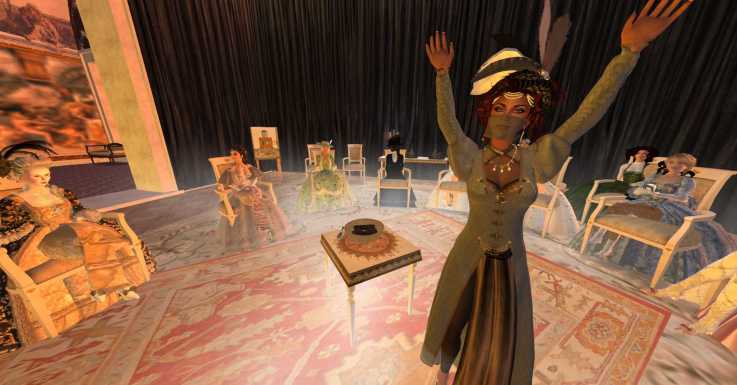 In RP, my name, Merry Chase, is short for Xiamara Remedios bint Iskandar y Pacheco (o MacNeil) de Chase. Thank gods for nicknames, eh? S'anyhow. That name places me as an Andalusian, and my backstory is Moorish Spanish with a wee dash o' Nova Scottish. (Yes, a Baroque era personality can be as much a mutt as my modern self!)
In RP, my name, Merry Chase, is short for Xiamara Remedios bint Iskandar y Pacheco (o MacNeil) de Chase. Thank gods for nicknames, eh? S'anyhow. That name places me as an Andalusian, and my backstory is Moorish Spanish with a wee dash o' Nova Scottish. (Yes, a Baroque era personality can be as much a mutt as my modern self!)
So, when Mercury asked me if I would be interested in the role of medium, I thought, if I am to play a spiritualist then my spiritualism will come from the Moorish, north-African, Grenadine, and Arabian influences.
I took a look around the internets and found some wonderful images and resources showing the popularity of "Turquerie" in the baroque fashion world. Here's a sampling...
...the fashion was much popularized by travel illustrations...
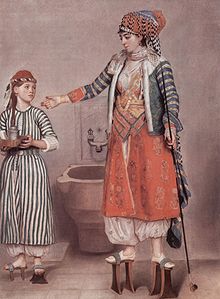 "Two 18th century Turkish women, pastel by Jean-tienne Liotard , who visited Turkey with a British ambassador in 1738. Unlike their baggy trousers, the huge pattens worn by the women would not have struck contemporary Europeans as remarkable, as Western women wore similar overshoes." - Wik i
"Two 18th century Turkish women, pastel by Jean-tienne Liotard , who visited Turkey with a British ambassador in 1738. Unlike their baggy trousers, the huge pattens worn by the women would not have struck contemporary Europeans as remarkable, as Western women wore similar overshoes." - Wik i
...having caught on in Europe already two decades prior to the above...
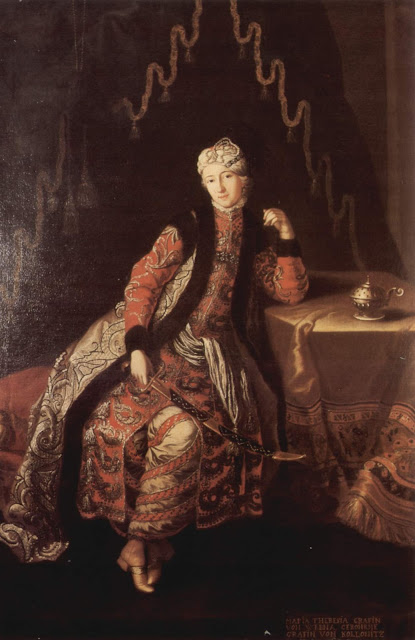 Lady as a sultana,c 1720 Nicolas de Largielle
Lady as a sultana,c 1720 Nicolas de Largielle
...herself, Madame Pompadour, was painted in Turkish trousers...
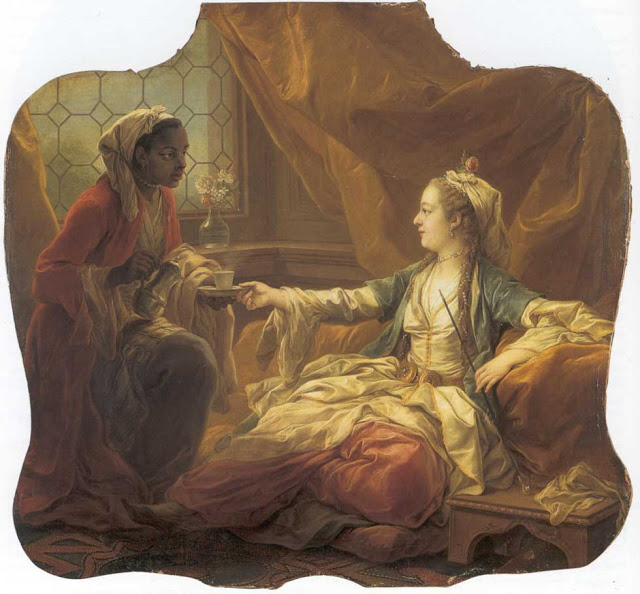
Madame de Pompadour as a sultana,1747 Carle van Loo
...and the exotic affectation is still popular, "today" ...
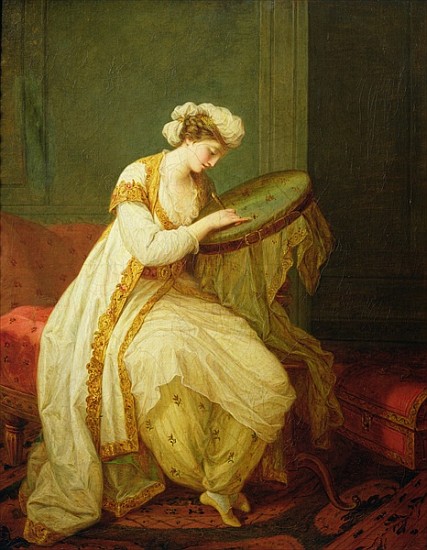
Lady in Turkish dress,c. 1780 Angelica Kauffman
So there you have it, my friends. Turquerie was not just for us Moors. Please explore this fashion trend further, especially if you're a designer in SL. I would love to see more Turkish trousers, baladi coats, turbans, and turn-toed slippers. I had to hunt like crazy for weeks to find the pieces of my ensemble. Let's bring back this fashion!
For more information, an article at cornell.edu illustrates and expounds on this trend going back in Europe to as early as the 12th century. (Face it, my palefaced friends-- you got a whole lot of your culture from Byzantium.) http://char.txa.cornell.edu/influences.htm
Yours for Enlightenment,
Merry
updated by @merry-chase: 07 Jan 2017 06:10:43AM







